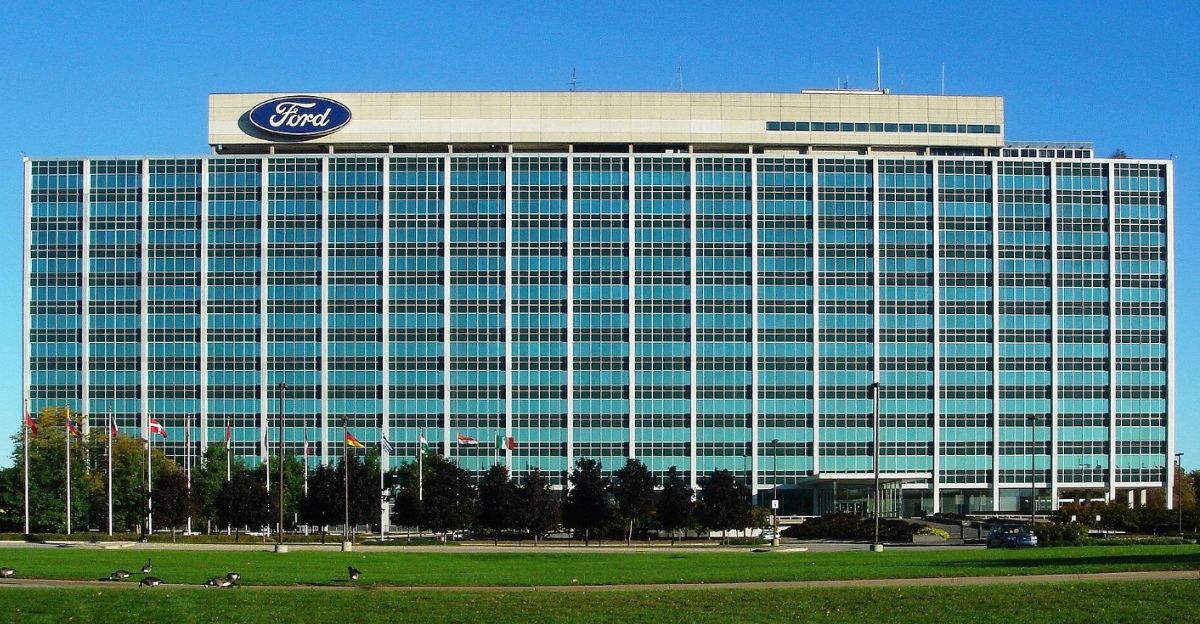
What began as a September policy shift has turned into an October standoff. Ford Motor Co.’s return-to-office mandate — requiring most salaried employees to work on-site four days a week — has reshaped daily life for thousands of workers and ignited a wave of frustration that still ripples through the automaker’s ranks.
The tone has changed sharply for a company once praised for flexible hybrid work. Inside Ford’s Michigan offices and remote teams, employees describe a culture in transition — one defined less by collaboration than by compliance checks and badge-swipe audits.
Thousands Face Warnings as Enforcement Tightens

According to internal communications reviewed by Automotive News, Ford has sent warning notices to roughly 4,000 employees whose attendance fell below the new threshold since early September.
The messages, triggered by automated badge data, warn that continued non-compliance “may result in discipline up to and including termination.” For many, it feels less like a nudge and more like a threat.
A Gradual Policy Turn, Then a Fast Enforcement

Ford’s path to stricter attendance began months earlier but accelerated quickly over the summer. Hybrid workers who once came in just 13 days per quarter were told to report three days per week in August, and by September 1, four days became mandatory.
The timeline, employees say, left little room to reorganize their lives or logistics.
Farley’s Vision for Collaboration and Speed

CEO Jim Farley has positioned the mandate as essential to Ford’s transformation. He’s repeatedly said that “speed and innovation come from being together,” linking in-person work to productivity as the company ramps up its electric vehicle and software strategies.
Executives echo that message, describing the policy as “non-negotiable” in building a stronger, faster Ford.
Workers Push Back Against “Broken Promises”

Inside Ford, the mood has been uneasy. Many say the company’s earlier promises of flexible hybrid work now feel hollow. “People built their lives around that commitment,” one employee told The Detroit Free Press.
Parents cite disrupted childcare plans; others point to longer commutes and the sense that management changed course without listening.
Automated Alerts Stir Anxiety

Since June, Ford’s automated attendance system has flagged workers averaging less than one office day per week. Employees say the system sends automated alerts that read like warnings — cold and impersonal.
Several told Bloomberg the emails felt “punitive,” with some even fearing their jobs were at risk after seeing co-workers publicly reprimanded for low badge counts.
Ford Admits “System Failures”

At a September company meeting, Ford’s human-resources director, Homer Isaac, acknowledged that some warnings were sent in error. “We have failed in that,” Isaac said, confirming that several employees were mistakenly flagged despite complying with the policy.
Ford has since pledged to refine its data-tracking systems and improve communication around attendance enforcement.
Calls for Genuine Flexibility

Workers say the issue goes beyond badge errors — it’s about trust. “Flexibility has to go both ways,” one departing engineer told Automotive News.
Employees collaborating across time zones say the rigid schedule disrupts efficiency, with meetings forced into narrow time slots. Others argue the policy overlooks productivity metrics in favor of physical presence.
Dearborn Overcrowding Adds Frustration

As workers returned in greater numbers, Ford’s Dearborn offices struggled to handle the influx. During August’s trial phase, employees reported overcrowded parking lots, limited desks, and tech shortages. “It’s chaos,” one worker said in an internal chat seen by The Detroit Free Press.
For some, the logistical strain underscored how unprepared the infrastructure was for a near full-scale return.
Ford Bets on New Headquarters

Ford says relief is on the way. A new 2.1-million-square-foot global headquarters, designed to house about 4,000 employees, is set to open in Dearborn in November.
Company leaders describe it as the “nerve center” of Ford’s next era — a space meant to inspire collaboration and innovation rather than just compliance.
Digital Protest Inside Ford

On October 2, a digital protest shook Ford’s internal systems. An anonymous employee hijacked meeting-room screens, broadcasting CEO Jim Farley’s face alongside an anti-RTO slogan laced with profanity.
Ford confirmed the incident to Reuters and said its IT team is investigating the breach. The episode highlighted how emotionally charged the debate has become inside the company.
Reflecting a National Corporate Shift

Ford’s stricter stance mirrors a broader corporate recalibration. Across the U.S., major employers such as Stellantis and Huntington Bank have reinforced in-office mandates in 2025, citing teamwork and creativity.
Analysts say the move reflects traditional companies reasserting control after years of pandemic-era flexibility that many executives now view as unsustainable.
Rival Automakers Take Different Paths

Detroit rivals have taken varying approaches. General Motors attempted a three-day office rule in 2022 but quickly softened enforcement after backlash. Ford’s policy has been notably firmer, and despite internal criticism, the company has shown no signs of backing down.
“They’re drawing a hard line where others blinked,” one industry analyst told Bloomberg.
Warning Language Raises Alarm

Internal memos obtained by Automotive News reaffirm Ford’s intent: “Ongoing non-compliance will result in discipline up to and including termination.”
While such phrasing is standard in HR policy, the tone has rattled workers already on edge. Several employees confirmed HR has begun reviewing attendance cases for potential disciplinary action.
Morale Hits a Low Point

Inside Ford, morale has dipped noticeably. “It feels like trust has evaporated,” one product designer told The Wall Street Journal.
Employees describe an atmosphere of fatigue and resentment, with some teams struggling to stay motivated amid what they view as heavy-handed enforcement. Even managers, insiders say, are privately uneasy.
Ford Pledges Adjustments, Not Retreat

In public statements, Ford has admitted “teething problems” in implementing the mandate but insists the policy itself won’t change. “We believe consistent in-person collaboration drives performance,” a spokesperson told CNN Business.
The company says it’s focused on fixing errors, not reversing direction — a message that leaves little doubt about its priorities.
Labor Advocates Voice Concern

While the mandate doesn’t affect Ford’s unionized factory workers, it has caught the attention of labor observers. “We’re seeing a growing divide between leadership’s expectations and worker realities,” said Marick Masters, a business professor at Wayne State University.
Advocates warn that white-collar burnout and attrition could rise if companies misjudge employee sentiment.
Job Cuts Add to Unease

Ford’s strict attendance policy comes as job cuts mount globally. In late September, the company confirmed plans to eliminate roughly 470 positions in South Africa, part of a broader restructuring tied to EV investments.
Industry watchers told Reuters the combination of layoffs and disciplinary warnings has created “a climate of deep uncertainty” across Ford’s workforce.
Ford Defends Its Stance

Despite criticism, Ford remains resolute. “In-person collaboration helps us move faster and make better decisions,” a company spokesperson told Automotive News.
Executives maintain that the new model is about accountability and performance — not punishment — and is essential to competing in a fast-evolving automotive industry.
The Road Ahead

As of October, Ford’s four-day attendance rule remains firmly in place, and compliance tracking continues. For employees, it’s a test of endurance in a shifting corporate culture.
For Ford, it’s a high-stakes experiment in balancing flexibility and control — one that could shape how America’s oldest automaker defines work in a post-pandemic world.